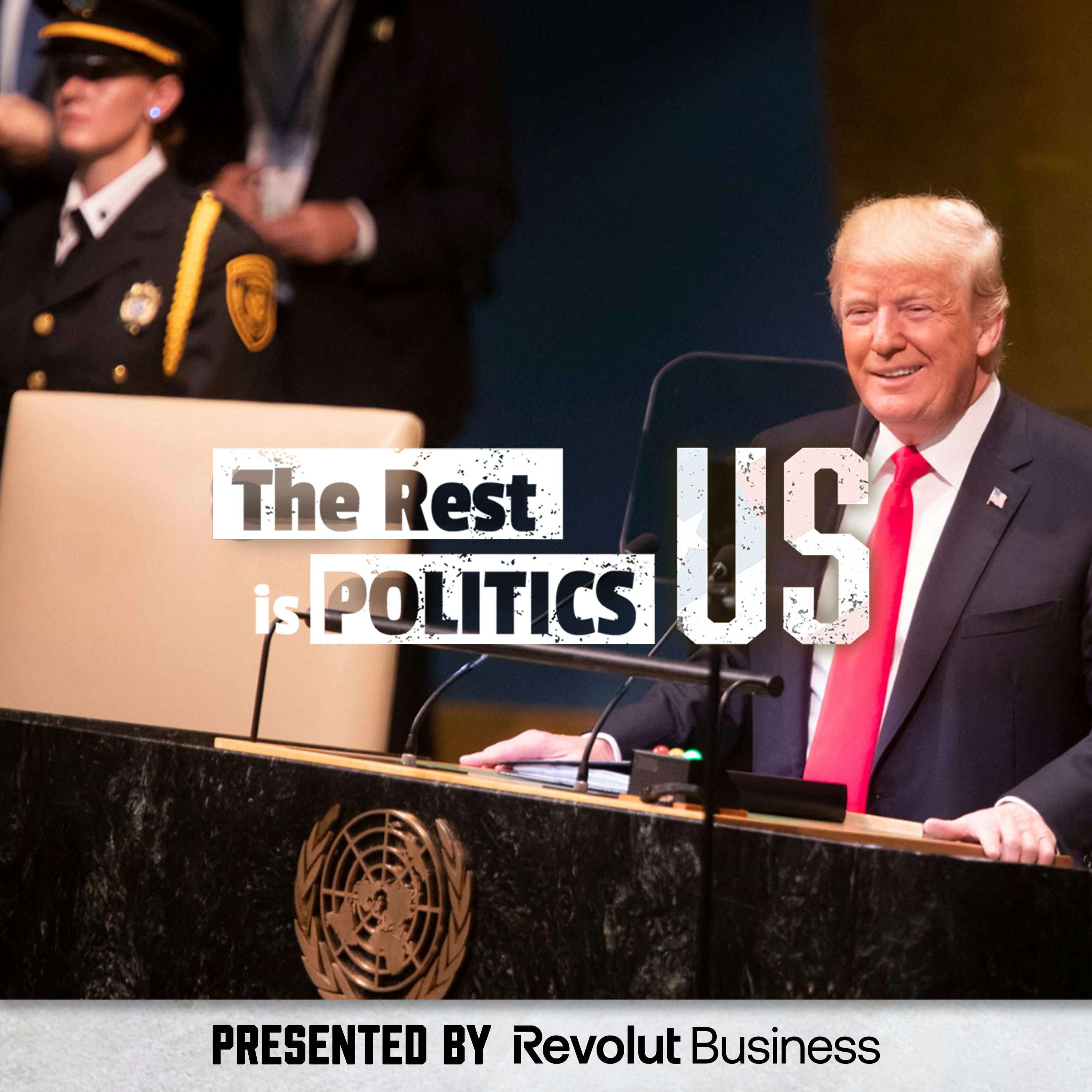114. Why Trump Won’t Take On Putin
Are the markets flashing warning signs of a U.S. recession? Is Trump really standing up to Putin—or just playing both sides on Ukraine? And, can AI, education, and global progress still give us hope in chaotic times?
Join Katty Kay and Anthony Scaramucci as they answer all these questions and more.
Become a Founding Member: Go deeper into US politics every week with ad-free listening, members-only miniseries, early access to live show tickets and a bonus members-only Q&A podcast every week. Sign up at therestispoliticsus.com
To save your company time and money, open a Revolut Business account today via www.revolut.com/rb/therestispoliticsus, and add money to your account by 31st of December 2025 to get a £200 welcome bonus or equivalent in your local currency. Feature availability varies by plan. This offer’s available for New Business customers in the UK, US, Australia and Ireland. Fees and Terms & Conditions apply.
For US customers, Revolut is not a bank. Banking services and card issuance are provided by Lead Bank, Member FDIC. Visa® and Mastercard® cards issued under license. Funds are FDIC insured up to $250,000 through Lead Bank, in the event Lead Bank fails. Fees may apply. See full terms in description. For Irish customers, Revolut Bank UAB is authorised and regulated by the Bank of Lithuania in the Republic of Lithuania and by the European Central Bank and is regulated by the Central Bank of Ireland for conduct of business rules. For AU customers, consider PDS & TMD at revolut.com/en-AU. Revolut Payments Australia Pty Ltd (AFSL 517589).
Instagram: @RestPoliticsUS
Twitter: @RestPoliticsUS
Email: therestispoliticsus@goalhanger.com
Assistant Producer: India Dunkley
Producer: Fiona Douglas
Video Editor: Kieron Leslie
Social Producer: Charlie Johnson
Senior Producer: Dom Johnson
Head of Content: Tom Whiter
Head of Digital: Sam Oakley
Exec Producers: Tony Pastor, Jack Davenport
Learn more about your ad choices. Visit podcastchoices.com/adchoices
Join Katty Kay and Anthony Scaramucci as they answer all these questions and more.
Become a Founding Member: Go deeper into US politics every week with ad-free listening, members-only miniseries, early access to live show tickets and a bonus members-only Q&A podcast every week. Sign up at therestispoliticsus.com
To save your company time and money, open a Revolut Business account today via www.revolut.com/rb/therestispoliticsus, and add money to your account by 31st of December 2025 to get a £200 welcome bonus or equivalent in your local currency. Feature availability varies by plan. This offer’s available for New Business customers in the UK, US, Australia and Ireland. Fees and Terms & Conditions apply.
For US customers, Revolut is not a bank. Banking services and card issuance are provided by Lead Bank, Member FDIC. Visa® and Mastercard® cards issued under license. Funds are FDIC insured up to $250,000 through Lead Bank, in the event Lead Bank fails. Fees may apply. See full terms in description. For Irish customers, Revolut Bank UAB is authorised and regulated by the Bank of Lithuania in the Republic of Lithuania and by the European Central Bank and is regulated by the Central Bank of Ireland for conduct of business rules. For AU customers, consider PDS & TMD at revolut.com/en-AU. Revolut Payments Australia Pty Ltd (AFSL 517589).
Instagram: @RestPoliticsUS
Twitter: @RestPoliticsUS
Email: therestispoliticsus@goalhanger.com
Assistant Producer: India Dunkley
Producer: Fiona Douglas
Video Editor: Kieron Leslie
Social Producer: Charlie Johnson
Senior Producer: Dom Johnson
Head of Content: Tom Whiter
Head of Digital: Sam Oakley
Exec Producers: Tony Pastor, Jack Davenport
Learn more about your ad choices. Visit podcastchoices.com/adchoices
Press play and read along
Transcript
Transcript is processing—check back soon.
The Rest Is Politics: US — 114. Why Trump Won’t Take On Putin





